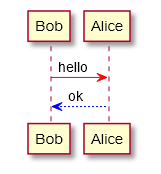Markdown to PDF Installation. After this, the commands md-to-pdf and md2pdf (as a shorthand) are globally available in your cli. If you installed via npm, run npm i -g md-to-pdf@latest in your CLI. If you cloned this repository instead, you. Output usage information -v, -version. This post reviews several methods for converting a Markdown (.md) formatted file to PDF, from UNIX or Linux machines. Using Pandoc: $ pandoc HowIgotsvg-resizerworkingonMacOSX.md -s -o test1.pdf. Markdown is a popular Markup Language. Several static site renderers like Gatsby take in markdown and split out web pages. Dev.to uses markdown for its blog posts. I use markdown to take notes. Github uses markdown in Gists, Pull Requests, Issues and README files. In this cheat-sheet, I have selected the most used markdown syntax.
Similar topics are coming up often on HN recently. I think it's time Markdown should be supported natively by browsers. Until then, there are things like:If you need Markdown+PDF (compatible with pdf generation in pandoc), use -p. Look for npm modules prefixed with exemd. Npm install -g pretty-markdown-pdf Command Line. To convert a markdown file to PDF, simply run: pretty-md-pdf -i my-doc.md Run with -help to see all the options available. This will output a file my-doc.pdf in the directory where my-doc.md resides. To specify an output path as my-exported-doc.pdf, run: pretty-md-pdf -i my-doc.md -o my-exported-doc.pdf.
TeXMe (https://github.com/susam/texme): This is my personal favorite because it supports the CommonMark standard of Markdown and also LaTeX via MathJax. I like standards so that I know that the Markdown I write (especially nested lists, code within nested lists, etc.) get rendered the same way everywhere. I write some math too, so MathJax support is useful. If you are looking for something where you can just slap together Markdown and LaTeX and turn the document instantly into a paper-like finish, this is a good choice. The output can be saved as PDF or printed too just like you would print any paper.
MdMe (https://github.com/susam/mdme): This is pretty much TeXMe without MathJax support.
Markdeep (https://casual-effects.com/markdeep/): This is like TeXMe but it supports a lot of features like diagrams, tables, etc. But it comes at the cost of standard conformance. Markdeep does not conform to CommonMark. I don't need these additional features for most of my writing but I care about standard conformance, so I go with TeXMe but if you need these features then Markdeep is a good choice.


Comparison of TeXMe vs. Markdeep by the author: https://news.ycombinator.com/item?id=18314175
If you are doing some books/docs writing or attempting to create your first book, you might get interested in this exceptionally nice tool – gitbook. It is a technical book building tool that allows you to embed code samples and exercises, and then generate a great online book that can be hosted on GitHub or any other web hosting.Moreover, from a loosely structured bunch of MarkDown files, you can customize output format to generate not only a static site, but also PDF, eBook, json or single HTML page. No manual markup and styling required. You get a clean and pretty usable interface right out of the box.Simple setup
Gitbook is a node.js package. So, in order to use it, you should have **npm** installed. You can serve a repository as a book by using: To start your first book, you have to create 2 files –README.md and SUMMARY.md. First one is a preface and second one is the main file which is going to be used to build the book structure. And it looks like this: You can easily build a static website using:
Md File To Pdf
Real life example
Markdown To Pdf Cli
Conclusion
Gitbook is currently in active development and it gets updated frequently. It also supports features like theming and translations. Gitbook is extremely easy to use and it could also be used to generate documentation, not only to writes books. I sincerely advice to check it out – gitbook.io!